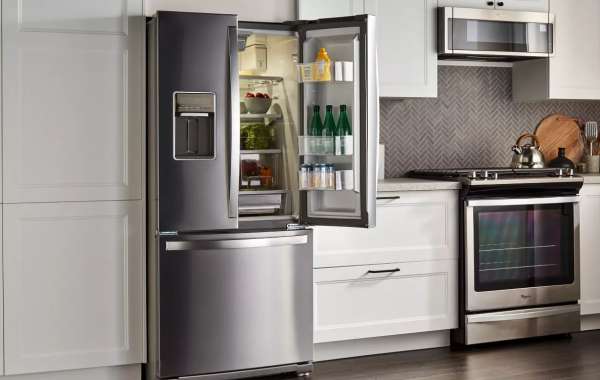Experiencing a refrigerator not cooling enough can be a hassle, especially when it affects your food storage. If your fridge is running but not cooling, you may need to take a closer look at its components to determine the cause.
Identifying Symptoms
Recognizing the signs of cooling failure can help you address the problem swiftly. Symptoms include:
- Food items feeling warm.
- Ice melting rapidly in the freezer.
- Excess moisture on shelves or food items.
Key Causes of Cooling Problems
1. Thermostat Malfunction
A faulty thermostat may be the reason for insufficient cooling. If it isn’t working properly, your refrigerator may not cool down to the right temperature. Make sure it’s set correctly and functioning as intended.
2. Blocked Air Vents
Air circulation is vital for keeping your refrigerator cool. Blocked vents can prevent cold air from circulating throughout the fridge. Ensure that nothing is obstructing the airflow.
3. Dirty Condenser Coils
Condenser coils that are covered in dust can significantly affect cooling performance. Cleaning these coils regularly can help improve your refrigerator's efficiency.
4. Worn Door Seals
If the door seals are damaged or dirty, warm air can enter the fridge, compromising its cooling ability. Check for any wear and tear on the gaskets and clean them as needed.
Effective Troubleshooting Steps
When facing a refrigerator running but not cooling, consider these troubleshooting steps:
- Adjust the Thermostat: Check that it’s set correctly.
- Inspect Vents: Ensure that no items block the air vents.
- Clean Coils: Regularly clean the condenser coils.
- Examine Door Seals: Check for damage and ensure a proper seal.
When to Call for Help
If your refrigerator still isn’t cooling properly, it might be time to consult a professional. Common issues that require expert attention include:
- Compressor Malfunctions: A failing compressor can prevent cooling altogether.
- Refrigerant Leaks: Low refrigerant levels can significantly impair cooling efficiency.
- Faulty Components: Other internal components may be malfunctioning.
Conclusion
By understanding the common reasons behind a refrigerator not cooling enough, you can take effective steps to resolve the issue. Regular maintenance is crucial for keeping your refrigerator running efficiently. If the problem persists, don’t hesitate to reach out to a professional repair service for assistance.




